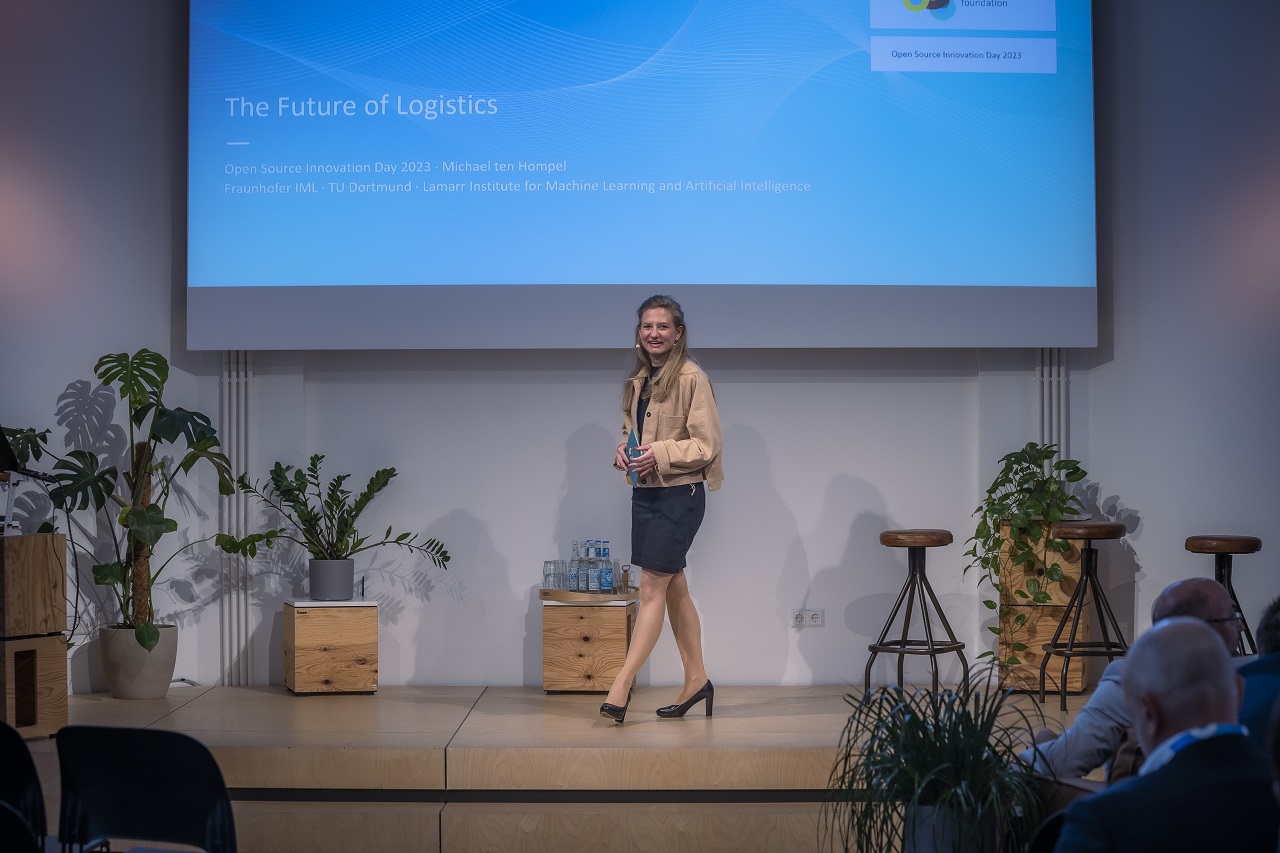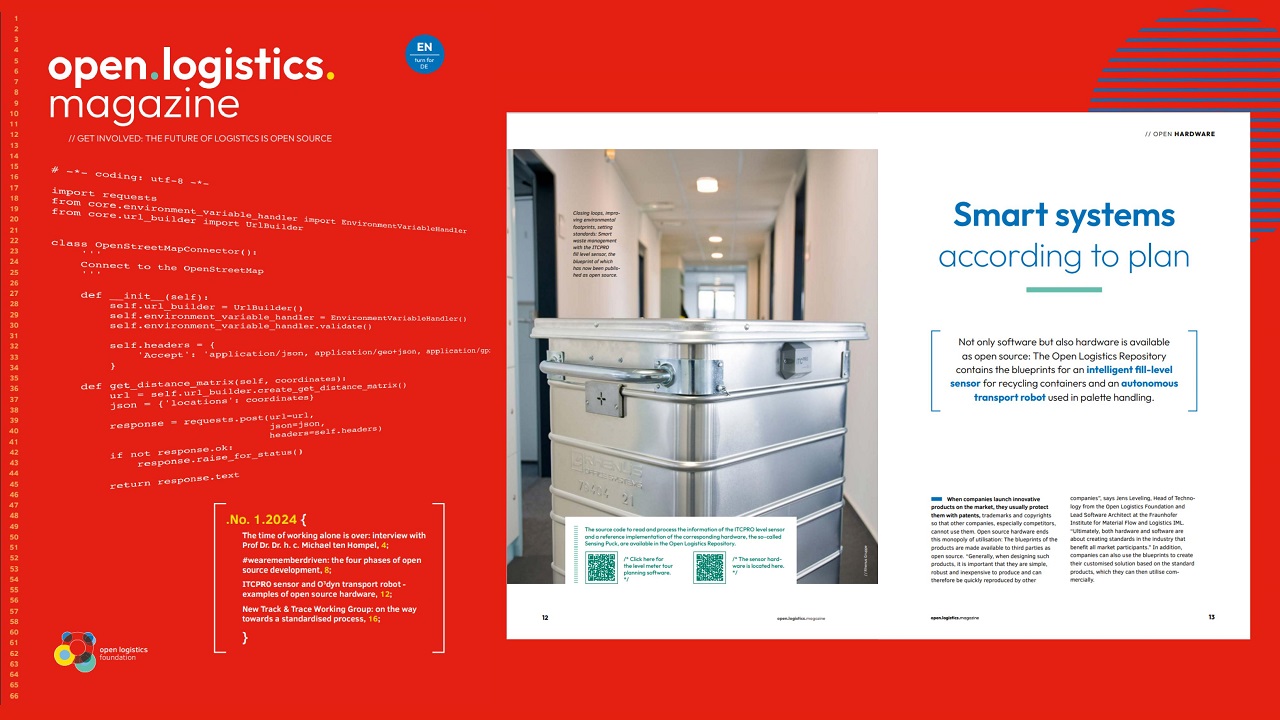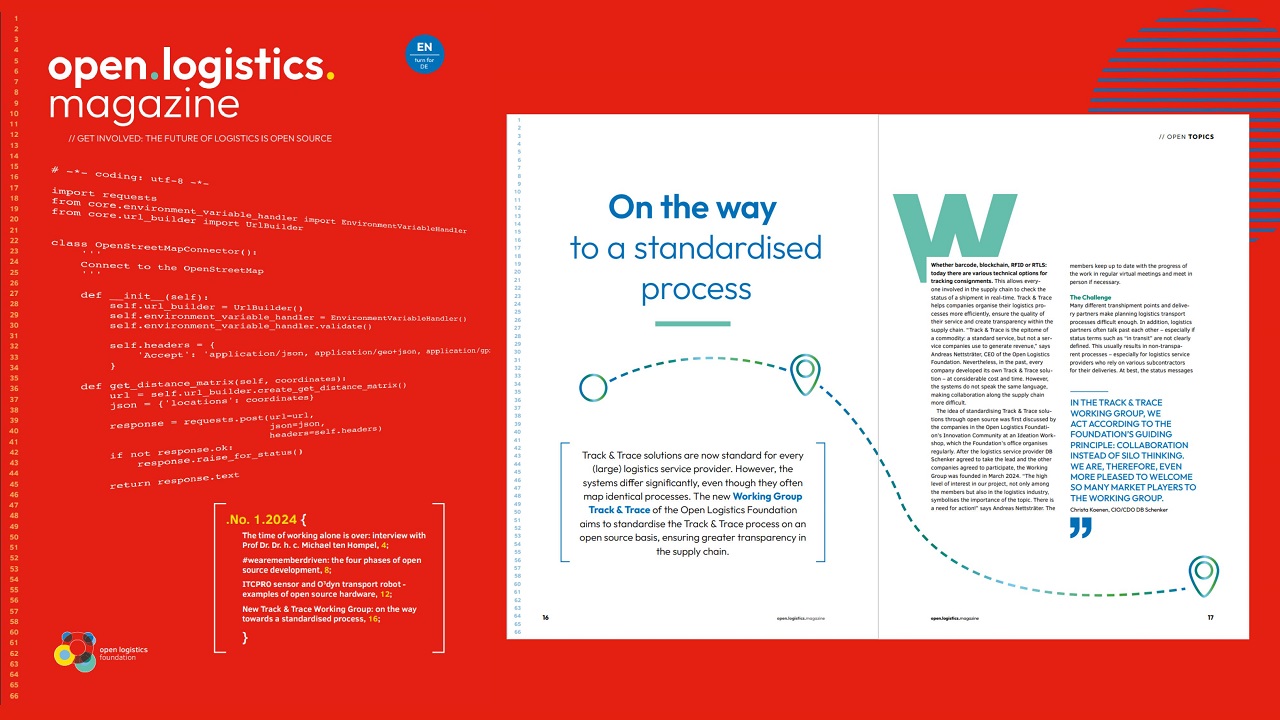Most people familiar with the Open Logistics Foundation are aware of its dedication to creating de-facto standards for the Logistics Industry through open source software development. Could you elaborate on this mission, explaining its necessity and practical implications?
Certainly, to truly grasp our mission and work, it is essential to understand the why! Why we advocate for open source solutions for the logistics industry in the first place. Logistics and supply chain operations are at the heart of our day-to-day lives. They are connected in multiple ways across the globe. We have tenthousands of operating companies just in Europe alone. All these logistical players offer similar services in their own unique way.
However, for decades now, these companies have faced the same common challenges, such as the incompatibility of system structures and documents. Ongoing technological advancements and disruptive business models continue to put logistics companies under higher strain. As a result, the efficiency of this vital industry is limited. This is where the Open Logistics Foundation comes in; we aim to ensure that all these companies operate efficiently, and unanimously at the basic level. Through collaboration in open source software and hardware development, the industry can actually play an active role in laying down the foundation of the basic functionalities, share knowledge, resources and motivation which would otherwise be inaccessible individually.
Delving deeper, the Open Logistics Foundation provides a platform for industry collaboration. What benefits does the Foundation gain from this?
There is no monetary incentive for the Foundation or its Innovation Community (members of the Foundation’s network). We are a non-profit organisation hosting free and accessible open source solutions. Anyone (also non-members) can use our components free of charge. We do not offer any commercial solutions, nor are we after them. Our diverse community includes logistics service providers, IT solution companies, platform operators, equipment service providers, and more.
Beyond shared resources and risk, our community members get to set and influence topic selection, have access to a knowledge network, leverage the platform’s neutrality and the power of the masses, and contribute to collaborative results. Furthermore, the results we get through collaboration are published in the Open Logistics Repository. These do not belong to any individual company but to the Open Logistics Foundation.
Examining the Foundation’s operations, what does that look like? Who plans and decides the topics?
The Open Logistics Foundation operates through a three-tier organisational structure. At the apex, Strategic Management, led by the Board of Directors and Board of Trustees, assumes a pivotal role in control and advisory functions. This top-tier guides the second level, Operational Management, represented by the Logistical Steering Committee and Technical Steering Committee. Operational Management assumes responsibility for quality assurance, specifications, and guiding topics. The final tier, the Implementation level, encompasses Working Groups and Projects. Community members, elected, volunteered, or project-driven, contribute to all levels, ensuring a collaborative and diverse approach to decision-making and execution within the Foundation. In the midst of it all is the Head Office; our role is to moderate or facilitate open source code development.
All member companies bring in their ideas, decide on topics, and collaboratively develop the software needed for the solution through open source. Decision-making and agenda-setting are never pre-defined; an ideation process drives them. Ideas, backed by interested members evolve into active Working Groups.
Having clarified the why and how, could you simplify what open source is and explain its use-case practically?
Open source involves a community-based approach to creating intellectual property (such as software), emphasising inclusiveness, transparency, and regular public updates. Sharing is caring is part of the culture. Some well-known examples are Linux and Firefox. In application, I can give an example from our current development with the eCMR project. Our community has developed an industry-wide eCMR standard based on open source. The generated code enables companies to handle all kinds of digital road shipping documents uniformly and interoperably. Nearly 200 real-life transportation cases in 15 countries, were successful in a pilot project with Dachser, Rhenus and Fraunhofer IML until mid of October. We look forward to developing it more and achieving industry-wide acceptance with this standard. You can read the full press release here.
We hope the above conversation has provided clarity on the Open Logistics Foundation and the work its community does. You can also check out our website’s FAQ page, where you will find answers to our frequently asked questions. If you have any further questions, please feel free to contact us and we will be happy to answer all your questions.




